As well as considering the materials and processes used to manufacture furniture solutions, companies like Workspace are shifting their focus to the entire lifespan of products.

February 29th, 2024
Every industry involved in production is focused on reducing its environmental impact through the development of eco-friendly products. This awareness has resulted in a noticeable shift in the field of commercial design and furniture towards more sustainable practices. Workspace Commercial Furniture is a shining example of this evolution; the company has made sustainability and eco-design the cornerstones of its entire design and manufacturing philosophy.
Sustainable design, eco-friendly design, and eco-design are all synonymous with a design approach that aims to reduce the negative impact on the environment through efficient design and careful selection of materials. The principal objective is to create products that respect the environment at every stage of their life cycle, from sourcing to production to use to final disposal.

In order to create products that are both socially and environmentally responsible, eco-designers must abide by a few core principles. Taking into account the full product life cycle, these principles emphasise a more thoughtful approach to design.


The Workspace way
Workspace is a leading Australian manufacturing and design company, with a proud history dating back to 1911. The company specialises in project-based solutions for a range of industries, including commercial, aged care, senior living, educational, hospitality, health, and accommodation.

Workspace’s vision is to keep our furniture in the office and out of the landfill. Their approach to sustainability permeates all aspects of their operation, as well as suppliers, collaborators, contractors, staff and clients.

Not only does Workspace’s eco-design policy meet the basic principles of sustainable design, with life cycle thinking applied at every stage, but the company ensures that it conforms to all relevant legal and regulatory compliance requirements for its operations, and sets and monitors objectives and targets for the prevention of pollution and for continual improvement of its Environmental Management Systems – Guidelines for incorporating ecodesign 14006:2020.

Even though Workspace has been certified to ISO 14001:2015 Environmental Management System for 17 years, the company is putting more effort than ever into minimising its environmental impact. The company has implemented new sustainable business models and is continuously reviewing its operations and product lines. The company has also implemented initiatives to track, evaluate, and report data on energy, water, and waste management. In addition to reducing waste generated by production processes wherever feasible, Workspace also diverts as much of it as possible from landfills.


As another example of the company’s commitment to sustainable manufacturing methods, Workspace holds certification under the Programme for the Endorsement of Forest Certification (PEFC). Several products have AFRDI ‘Green Tick’ certification, which means the furniture meets a robust set of sustainability requirements.
Learn more about Workspace and their eco-design philosophy.


INDESIGN is on instagram
Follow @indesignlive
A searchable and comprehensive guide for specifying leading products and their suppliers
Keep up to date with the latest and greatest from our industry BFF's!
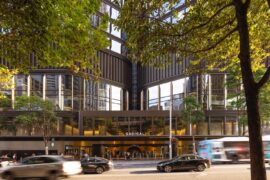
Rising above the new Sydney Metro Gadigal Station on Pitt Street, Investa’s Parkline Place is redefining the office property aesthetic.
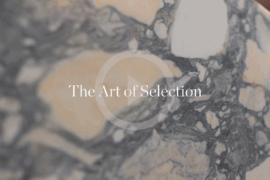
CDK Stone’s Natasha Stengos takes us through its Alexandria Selection Centre, where stone choice becomes a sensory experience – from curated spaces, crafted details and a colour-organised selection floor.
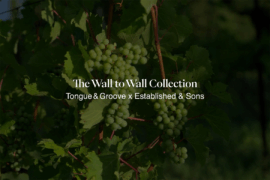
London-based design duo Raw Edges have joined forces with Established & Sons and Tongue & Groove to introduce Wall to Wall – a hand-stained, “living collection” that transforms parquet flooring into a canvas of colour, pattern, and possibility.
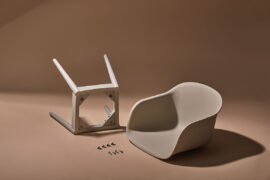
MillerKnoll releases the 2025 Better World Report showcasing how design can drive meaningful change through measurable progress across social, environmental and governance initiatives

BLP’s new Sydney Children’s Hospital, Randwick building brings together paediatric care, family-centred design and Australia’s first Children’s Comprehensive Cancer Centre in a major addition to the Randwick Health & Innovation Precinct.
The internet never sleeps! Here's the stuff you might have missed
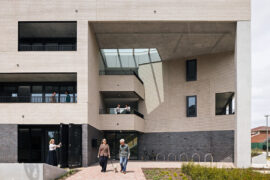
Brett Ward, General Manager of Marketing at Brickworks, tells us how modern approaches to sustainability are intersecting with the long history of the brick.
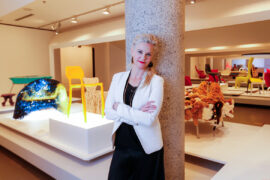
In what the DIA describes as a “major boost for the profession,” a NSW Parliamentary Commission has released a report on the Review of the Design and Building Practitioners Act 2020.